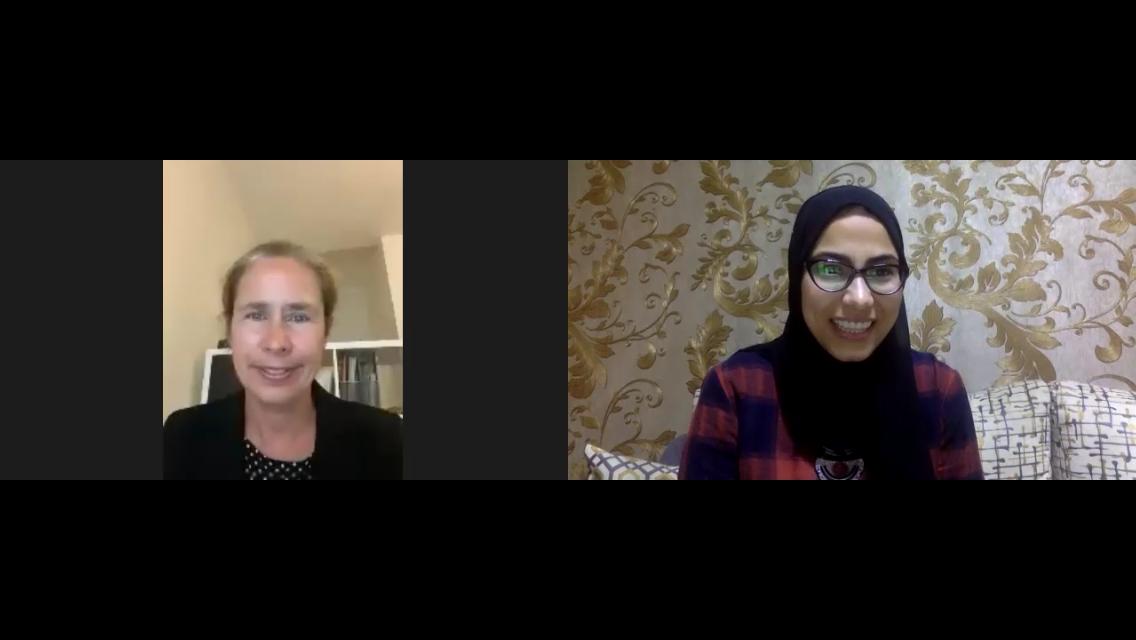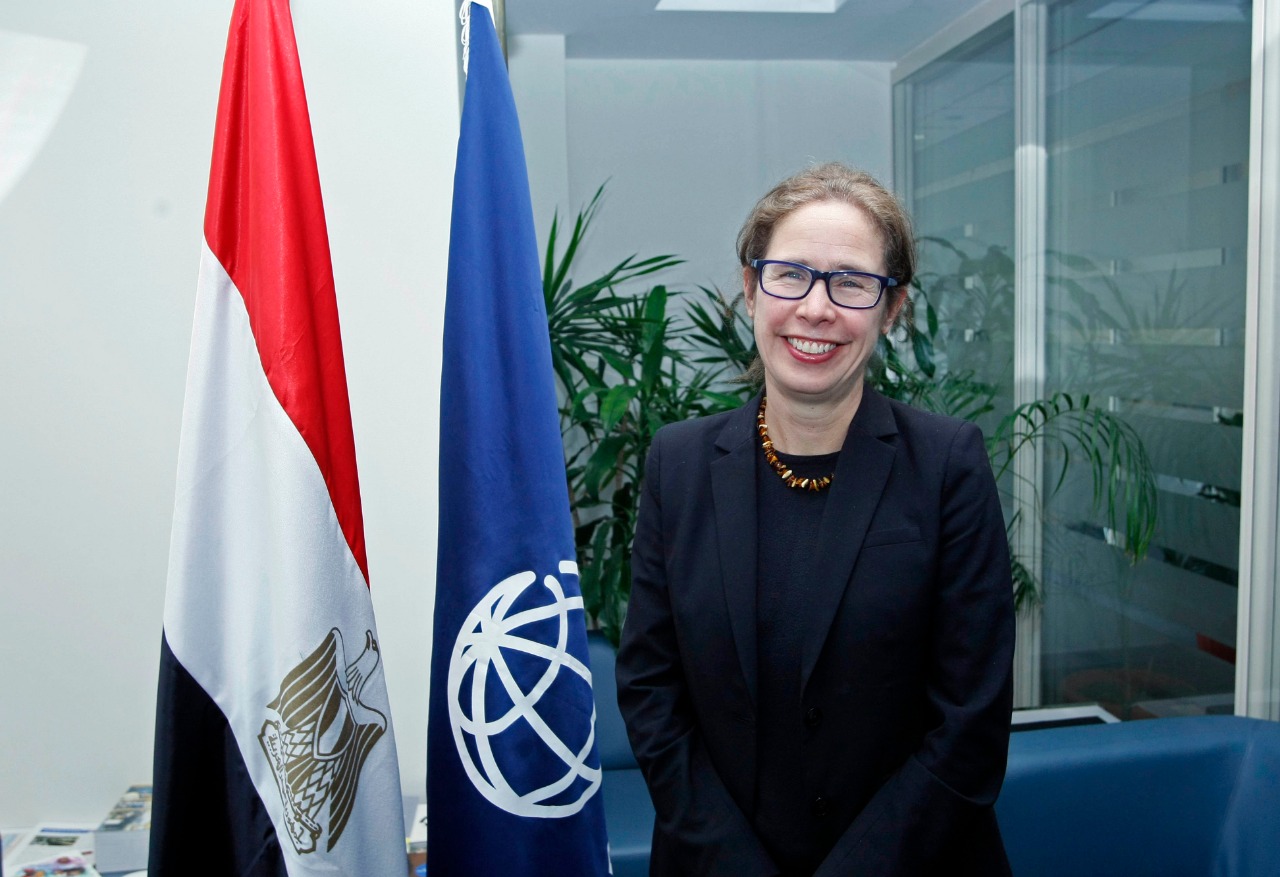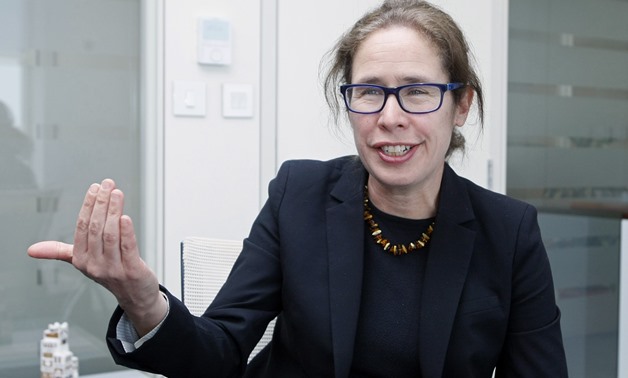CAIRO – 20 May 2020: As the duration of the coronavirus pandemic is still unknown, and expectations eye global economic recession this year, Egypt is sparing no effort to provide needed health care.
Amid fears of setbacks after the progress Egypt made under its economic reform program, Egypt Today magazine spoke to the World Bank’s Country Director in Egypt Marina Wes, who spoke about a recent US$50 million fund dispersed by the WB to strengthen Egypt’s COVID-19 pandemic response.
She further explained, via Zoom interview, the World Bank’s forecasts on Egypt’s economic growth amid the pandemic.

Egypt Today's interview with Marina Wes via Zoom
Below is the interview
bt: Would you please briefly tell us about the US$50 million fund program?
Wes: The World Bank Group (WBG) is taking broad, fast action to help developing countries strengthen their pandemic response, increase disease surveillance, improve public health interventions, and help the private sector continue to operate and sustain jobs.
On March 17, The World Bank and IFC’s boards of directors approved a $14 billion package of fast-track financing to respond quickly to the rapid spread of COVID-19 and its implications. The IFC is providing $8 billion in financing to help private companies affected by the pandemic and preserve jobs. The World Bank (IBRD and IDA) is making an initial US$6 billion available for immediate support to assist countries coping with the health and economic impacts of the global outbreak.
Egypt has qualified for $50 million funding, the maximum available for Egypt under the Fast Track Facility based on the criteria of population size. A minimum allocation of US$2.5 million applies for countries with populations below 500,000 while $50m is allocated for countries with a population of 100 million.
bt: How do you plan to support Egypt’s pandemic response through this program?
Wes: This project is using what we call “the Multiphase Programmatic Approach” (MPA). It is an adaptive and programmatic approach that is considered the most flexible approach to launch an emergency response with its flexibility to quickly adopt to the changing situation and learning lessons.
The US$50 million is the first phase; it supports the prevention, the detection and response to the coronavirus, and it will disperse quickly. More than 75 percent will disperse as soon as the operation is clear and effective, and all of it will disperse within the first year.
The health response is the first phase of the overall pandemic response, and subsequently, we are having discussions to support the authorities also on the social and economic response.

Marina Wes, the new country director of the World Bank in Egypt during an interview with Egypt Today magazine in March 2019 - Photo by Ahmed Maarouf/Egypt Today
bt: While global economic recession expected this year as a result of the pandemic, the IMF projected that Egypt would see its economy expand this fiscal year, what do you think about that?
Wes: We also forecast for this fiscal year (which runs from July 1, 2019 to June 30, 2020), Egypt will grow around 2 percent, as on the eve of the pandemic, Egypt had a high growth rate; it was 5.6 percent on the first half of the last fiscal year.
The initial conditions of the Egyptian economy, prior to COVID-19, were characterized by a largely stabilized macroeconomic environment, thanks to fiscal, exchange rate, and energy sector reforms, which underpinned a robust growth performance, generated a solid primary budget surplus, and improved external accounts and contributed to the accumulation of a comfortable level of foreign reserves. Thus, entering the COVID-19 crisis, Egypt had built buffers in its external and fiscal accounts.
Like almost all countries around the world, the outlook for the Egyptian economy is uncertain, because the duration and severity of the COVID-19 pandemic is still unknown.
I think the structural reform that Egypt has started and is committed to continue will however help for the economy to rebound and to recover quickly.
bt: How does your program target the medical teams who are at risk combating the virus?
Wes: Health workers and first responders are an important asset during the time of pandemic and other health crises. This project complements the ongoing government’s efforts to provide the needed personal protective equipment (PPE) through emergency budgetary and off-budget allocations.
The project supports too the training of health workers and first responders, including physicians, nurses, dentists, pharmacists, physiotherapists, medical technicians and community health workers to prevent the spread of COVID-19 among health workers and first responders.
Appropriate training modalities will be used to ensure the participation of both genders and training will be delivered in the Ministry of Health and Population (MOHP)’s training centers and/or in various MOHP affiliated hospitals and health facilities. Training will include the proper use of PPE as well as other safety measures such as techniques for infection prevention and control.
Furthermore, the project will support the strengthening of clinical care capacity.
bt: How does this program help the poorest, the most vulnerable and the informal workers who are highly affected by the crisis?
Wes: All COVID-related services are offered free of charge in Egypt, which increases the access by the poorest and most affected population segments.
The project will also support the development and adoption of a national plan to address high-risk population groups’ needs under the COVID-19 response. Such groups will include the elderly, pregnant women, inhabitants of urban slums, people with non-communicable diseases (NCDs,) infants, people with compromised immunity e.g. HIV patients, etc.
The plan will include the following: (i) identification of high-risk population groups; (ii) specific measures to protect those groups; and (iii) guidelines for health providers to manage such sub-groups with regards to COVID-19.
bt: How do you advise Egypt to lessen the negative impacts on its economy especially after it has progressed in its reform program?
Wes: I think in the short term, and that’s what our multiphase programmatic approach tries to mirror, the focus has to be on the health response and mitigating the social impact of the crisis. That is simultaneously important to continue with the structural reforms, in addition to supporting firm resilience so that the recovery can be faster.
As the crisis abates, for businesses to expand and generate large-scale high-quality employment opportunities, it will be crucial for Egypt to sustain macroeconomic stability, and push ahead with second generation reforms.
Also, the multi-dimensional health and economic crisis brought about by the COVID-19 pandemic is shedding light on the importance of initiating a second wave of structural reforms now, which will help the economy recover faster down the road. Such structural reforms should focus on improving the targeting of social programs, creating an enabling environment for the private sector and improving firm resilience, improving sector governance and productivity, closing spatial disparities, and raising Egypt’s human capital through enhancing health and education services.



Comments
Leave a Comment